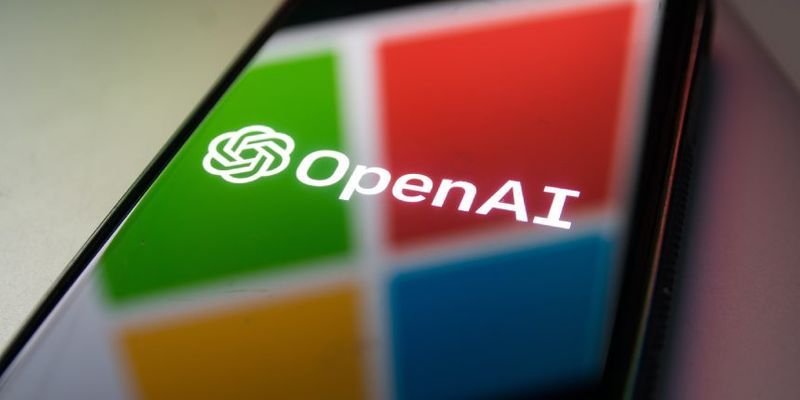Startup
Interspecies Communication: Talking to Your Dog Will Soon Be a Possibility

Imagine a world where you can chat with your dog about their day or ask your cat what’s on their mind. This isn’t science fiction anymore, thanks to advances in artificial intelligence. Interspecies communication is on the horizon, and AI is at the forefront of this groundbreaking development.
The Elephant Connection
The journey towards interspecies communication has deep roots. In the 1980s, Joyce Poole observed that African elephants seemed to call specific individuals by name, an idea confirmed decades later through rigorous studies. By encoding elephant calls into numerical data and using machine learning models, researchers could predict which elephant a call was directed at with remarkable accuracy. This suggests that elephants, like humans, use specific signals to communicate with each other by name.
AI and Bioacoustics: A Perfect Match
AI’s ability to process vast amounts of data quickly has revolutionised our understanding of animal communication. Tools like DeepSqueak, which analyses ultrasonic vocalisations in rodents, have automated the previously tedious process of decoding animal sounds. This automation not only saves time but also enhances accuracy, allowing scientists to connect specific calls to behaviors and emotions.
The Role of Large Language Models
The most exciting development in this field is the application of large language models (LLMs) like those behind chatbots. Researchers are now developing LLMs tailored for interspecies communication. These models can analyse the complex patterns in animal vocalisations and behaviors, potentially translating them into a form understandable to humans. This technology is still in its infancy, but the early results are promising. Projects like the Earth Species Project are leading the way by leveraging AI to decode the communication systems of various species, including whales and birds.
Practical Applications and Ethical Considerations
Understanding animal communication isn’t just about satisfying human curiosity. It has profound implications for conservation and animal welfare. For example, deciphering the vocalisations of endangered species can provide insights into their needs and behaviors, aiding in more effective conservation strategies. However, this technology also raises ethical questions. How should we handle the data? What are the implications of understanding and potentially manipulating animal communication? Experts emphasise the importance of using this knowledge responsibly to avoid exploitation and harm to animals.
Future Prospects
The ultimate goal of interspecies communication research is two-way communication, akin to a Turing test for animals. Imagine asking your dog why they’re barking and getting a meaningful response. While this may sound like a scene from a futuristic movie, the foundational work being done today makes this a plausible reality for tomorrow. As AI continues to evolve, the dream of talking to animals moves closer to becoming an everyday experience.
Startup
Swiggy IPO gets oversubscribed led by QIB bids

Foodtech giant Swiggy IPO was oversubscribed 1.07 times by Friday afternoon, the third day of its book-building process.
Qualified Institutional buyers (QIBs), which typically invest on the last day to gauge overall market demand, came through for the company’s IPO, with the portion oversubscribed 1.52 times.
According to the BSE, non-institutional investors(NIIS) made bids for 22% of the allocated issue size, while retail investors subscribed to 97% of the portion.
The Sriharsha Majety-led company saw the quota reserved for employees being subscribed 1.38 times.
On the first and second days of the book-building process, Swiggy IPO was subscribed only 35% and 12%, respectively.
Swiggy has secured nearly Rs 5,085 crore (about $605 million) from anchor investors, including the life insurance and mutual fund divisions of HDFC, ICICI, and SBI. The anchor book attracted participation from over 75 major domestic mutual funds, along with international investors such as Astrone Capital, Fidelity, and BlackRock.
The Bengaluru-headquartered company, which competes with publicly listed Zomato and General Catalyst-backed Zepto, has set its IPO price band at Rs 371 – Rs 390 per equity share.
Startup
OpenAI spent $10 million on this domain: Here’s why!

Have you checked out X (formerly Twitter) lately? If you have, you might have come across an intriguing post by Sam Altman featuring a mysterious URL called “Chat.com”, with no caption. Curious? When you click on it, you’re taken straight to OpenAI’s groundbreaking tool, ChatGPT.
OpenAI has made headlines recently with a jaw-dropping move: they reportedly shelled out over $10 million for this domain! At first glance, this looks like a steep price tag in an era where many brands are trimming their budgets to stay lean.
So, what’s the story behind this hefty domain purchase? Let’s take a closer look at this!
Why OpenAI spent millions of dollars on a domain
This strategic move is driven by OpenAI’s mission to establish itself as a dominant force in the realm of AI-powered tools, particularly through its flagship product, ChatGPT.
In the tech world where innovation reigns supreme, securing a domain that perfectly aligns with the branding and functionality of its most popular service is a given. Today, ChatGPT has rapidly become a go-to AI tool used by millions for generating images, answering questions and offering assistance with content creation and even programming.
So, OpenAI’s purchase of chat.com is not just about owning a cool web address—it’s a calculated move to enhance its digital identity and ensure that the ChatGPT experience remains tied to its brand as it expands its offerings.
The bigger picture: OpenAI and HubSpot
In a surprising turn of events, the tech world is buzzing over OpenAI’s recent million-dollar domain acquisition, leaving many to wonder about its intriguing backstory. The domain in question, chat.com, has quite the history—it was initially registered way back in September 1996.
Fast forward to 2023, and it found a new owner in Dharmesh Shah, the co-founder and CTO of the widely popular CRM platform HubSpot, who purchased it for a staggering $15.5 million! But the plot thickens!
Just a few months later, in March, Dharmesh dropped a bombshell: he sold chat.com to an anonymous buyer for an undisclosed sum, which has now been confirmed to be OpenAI. While Sam Altman has remained tight-lipped about the specifics of the acquisition, reports from The Verge suggest that Dharmesh may have pocketed more than $15 million from the sale.
This hefty investment in chat.com is more than just a flashy purchase; it’s part of OpenAI’s strategic vision. Owning a domain that’s not only memorable but also inspires trust is crucial for establishing credibility and attracting customers in this competitive landscape.
Chat.com is now ChatGPT’s new destination
Spending more than $10 million on a domain might seem extravagant, but for OpenAI, this investment is a strategic move aimed at building a more unified, and recognisable brand. With chat.com, the company positions itself at the centre of the rapidly growing AI-powered market. As OpenAI continues to innovate, this domain acquisition will likely prove to be one of the company’s most crucial investments in securing its place at the top of the AI industry.
Startup
Trent Q2 profit grows 47% to Rs 335 Cr; sales jumps 39.3%

Tata Group retail firm Trent on Thursday reported a 46.9% growth in its consolidated net profit to Rs 335.06 crore for the second quarter ended September 2024.
The company had posted a consolidated net profit of Rs 228.06 crore a year ago, according to a regulatory filing from Trent, which operates retail stores under brands like Westside, Zudio, and Star.
Its consolidated revenue from operations increased 39.37% to Rs 4,156.67 crore during the quarter under review. It was Rs 2,982.42 crore in the year-ago period, it added.
Trent’s total expenses rose 48.49% to Rs 3,743.61 crore in the September quarter.
As of September 30, Trent was operating 226 Westside, 577 Zudio and 28 stores across other lifestyle concepts, the company said in an earning statement.
“During the quarter, we opened 7 Westside and 34 Zudio stores (including 1 in Dubai) across 27 cities. We also consolidated 9 Westside and 16 Zudio stores,” it added.
Its Chairman Noel N Tata said: “Consumer sentiment has remained relatively muted. This coupled with seasonality has meant that retail businesses have faced headwinds. In the foregoing context, the team has delivered strong results across brands, concepts, categories and channels in Q2”.
Shares of Trent Ltd on Thursday settled at Rs 6,498.45 on BSE, down 6.54% from the previous close.
-

 Startup Stories1 year ago
Startup Stories1 year agoWhy Millennials, GenZs Are Riding The Investment Tech Wave In India
-

 Startup Stories1 year ago
Startup Stories1 year agoStartups That Caught Our Eyes In September 2023
-

 Startup Stories1 year ago
Startup Stories1 year agoHow Raaho Is Using Tech To Transform India’s Fragmented Commercial Trucking
-

 Startup Stories1 year ago
Startup Stories1 year agoMeet The 10 Indian Startup Gems In The Indian Jewellery Industry’s Crown
-

 Crptocurrency8 months ago
Crptocurrency8 months agoLither is Making Crypto Safe, Fun, and Profitable for Everyone!
-

 Startup Stories1 year ago
Startup Stories1 year agoHow Volt Money Is Unlocking The Value Of Mutual Funds With Secured Lending
-

 Startup Stories1 year ago
Startup Stories1 year agoWhy Moscow-Based Kladana Considers Indian SME Sector As The Next Big Market For Cloud Computing
-

 E-commerce1 year ago
E-commerce1 year agoTop Online Couponing Trends To Watch Out For In 2016




